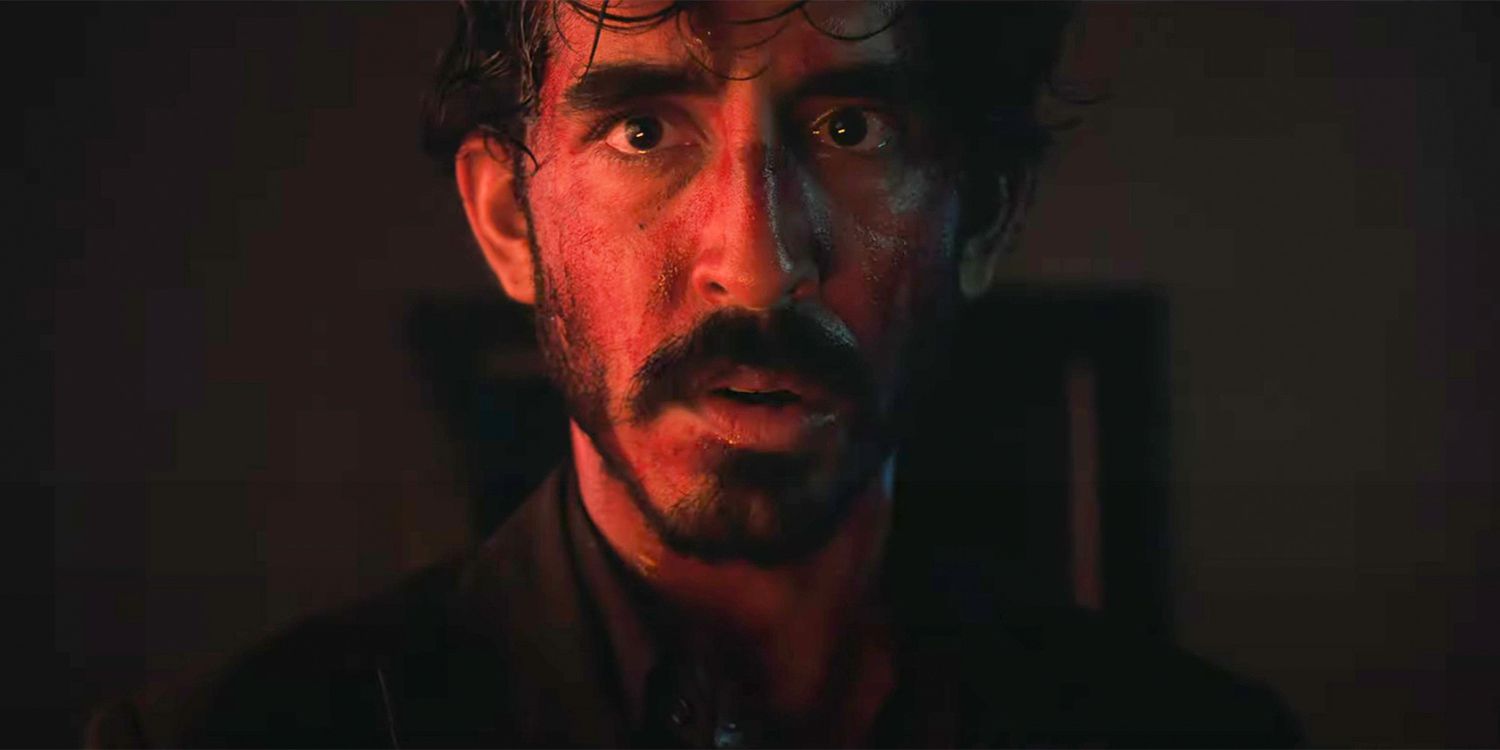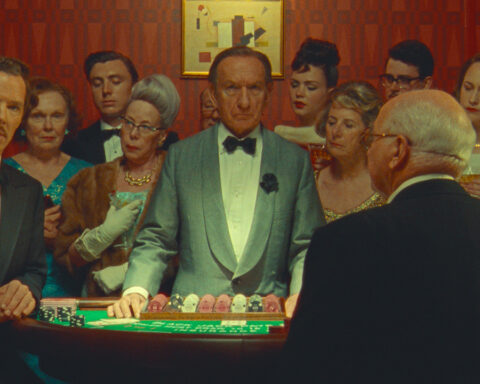As a movie lover, one of the most wonderful pleasures of this passion is discovering new filmmakers with their own identity, style, and message. There’s almost always something special about a feature film debut from an unknown director, but when it’s from a highly popular actor with an overwhelmingly positive public opinion, the expectations surrounding the movie inevitably change. Dev Patel (The Personal History of David Copperfield, Slumdog Millionaire) directs, writes – along with Paul Angunawela and John Collee (Hotel Mumbai) – produces, and stars in Monkey Man, whose story described as “John Wick in Mumbai” was deemed too heavy for the Indian audience by Netflix, prompting Jordan Peele (Get Out) to watch it, buy it, and give it a theatrical release window, so impressed he was.
Monkey Man tells the story of Kid (Patel), a young man who tries to survive night after night in an underground fight club where, while wearing a monkey mask, he’s beaten by more popular fighters for money. After years of pent-up anger, Kid finds a way to infiltrate the heart of the city’s corrupt elite. With childhood traumas simmering, his hands, mysteriously marked by scars, lead a revenge operation aimed at settling scores with the men who took everything from him.
“I think the action genre is sometimes abused by the system. I wanted to give it real soul, real trauma, real pain… And I wanted to infuse the film with a little bit of culture.” Patel uttered these words in an interview about Monkey Man and delivered on his promise. Whatever may be said about his directorial debut – which has its issues, we’ll get to that – there aren’t that many filmmakers capable of translating their will, vision, and heart into the big screen. Some get lost in narrative formulas, others in studio executive decisions, and many simply lack the necessary talent, as hard as it is to accept such a statement.

Patel’s commitment to his story and character is remarkable, but these actorly traits were already known. Everyone was certain Patel would deliver a performance worthy of endless compliments, and in Monkey Man, he shines again with a portrayal more complex than it seems, forced to demonstrate fury, hatred, and resentment in an extremely intense yet equally restrained manner for most of the runtime. The actor contributes as much to the gradually more suspenseful, tense atmosphere as Jed Kurzel’s powerful score (Overlord) and the overall sound design, as well as the narrative premise promising an action-packed third act.
Indeed, Monkey Man‘s standout elements lie in its culturally and thematically rich narrative and, of course, its wildly violent fights. “For me, this is an anthem for the underdogs, the voiceless, and the marginalized,” says Patel when asked about the movie’s message and the value of representation therein – the hijra community, known as the third gender in India, appears at a crucial moment in the film and occupies a considerable amount of screen time. It’s sad to admit this, but the truth is that it will always be a high risk to bring this kind of representation because it will attract a certain type of audience that won’t hesitate to try to boycott it. Fortunately, Patel remains true to his mission and not only focuses entirely on this community when it first appears but also explores its religious connection to a divine figure – a mix of two Hindu gods, one male, the other female – symbolizing their non-conformity with the rest of society.
In terms of action, Monkey Man shares the mentality of “imitation is the best form of flattery”. Taking inspiration from John Wick, Old Boy, and The Raid, Patel and his stunt team organize long, fast-paced fight set pieces. However, here arises one of the first problems with the movie. Narratively, it makes perfect sense for the action to be rough around the edges for most of the runtime since Kid isn’t a natural fighter, so the shaky camerawork of Sharone Meir (Silent Night) and the messy editing (Dávid Jancsó, Tim Murrell) are theoretically warranted, even though it’s visually unappealing and incomprehensible to watch at certain points.
Only in the third act, after certain events lead Kid to improve himself in these violent situations, can one breathe a little with a slight pullback of the camera that allows for, finally, fights with phenomenal stunts. Patel still keeps the audience close to the protagonist, always trying to create a “street fight” atmosphere where there are no rules and anything can happen, in addition to the raw, bloody brutality. The structure of this act even recalls video games where you have to overcome several “bad guys” of different difficulties until you get to the “final boss” at the top of their “castle”.

While the pacing of the action scenes leaves no room for relaxation, Monkey Man struggles to find the right rhythm in the unfolding of the main story. Too many barely perceptible flashbacks inflate the runtime, but it’s easy to piece together what happened in the past, ultimately making the movie even more predictable than it already was, reaching a point where continuing to apply this storytelling method loses its value. There’s also little character development beyond Kid, which isn’t inherently bad, but at least the antagonist – a ruthless, corrupt spiritual guru with no mercy for the poor – had the potential for a more intriguing sociopolitical study.
Finally, a tiny detour before concluding. It’s an uncomfortable truth, but this kind of behavior is undeniable. The fact that Patel is a popular actor immediately puts his directorial debut in a different position from, say, a completely unknown filmmaker. Monkey Man isn’t a perfect first feature, far from it, but I fear the overall critical lens might be “less firm” precisely because the story comes from Patel. The pressure will always be higher on those who haven’t proven anything in any cinematographic department, but Patel has proven himself – and not just a little – in the field of acting. Being fair and honest means judging his work under the same criteria as all others who have faced the same circumstances. And thus…
Monkey Man shows that Dev Patel still has much to learn when it comes to directing and writing, but his unwavering commitment to a culturally and thematically rich story deserves countless praises. A revenge arc with some pacing issues narrative-wise, but with action sequences loaded with energy and adrenaline, even when chaotically choreographed and shot. Predictably dedicated performance from Patel that avoids some genre formulas while paying homage to some of the classics that inspired him. An imperfect yet compelling debut.






